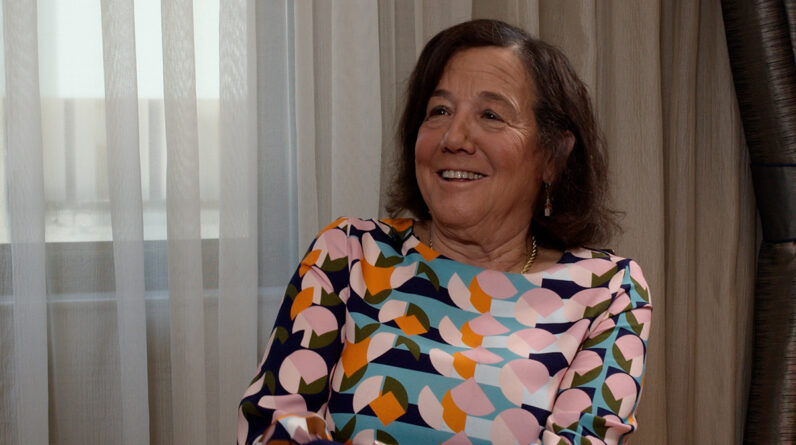
After a long hiatus, The Sustainability Story podcast from CFA Institute is back. In the first new episode, Paul Andrews, head of Research, Advocacy, and Standards at CFA Institute, speaks with Ceres president and CEO Mindy Lubber about the critical connection between climate risk and financial risk.
Mindy Lubber believes that climate risk is financial risk and that understanding this relationship is crucial to addressing the threat.
“Our job is to make the case that, whether it’s climate change or water shortages or, frankly, a number of social issues, that they have economic implications as great as any others,” she said. “They need to be part of the financial framework.”
According to Lubber, companies must recognize climate’s change’s economic implications and incorporate them into their decision-making processes. Investors can help by engaging with companies to set emissions reduction goals. Lubber says the top 100 companies globally are responsible for 80% of emissions, making their actions particularly significant if climate change is to be dialed back.
Uniting Stakeholders for Change
One of the obstacles to mitigating climate risk, Lubber says, is bringing together and building consensus among the various stakeholders involved. She singles out four critical cohorts in particular: investors, the investment community, corporates, and governments and authorities.
Aligning all these disparate interests will not be easy, but doing so is imperative given the stakes. “If we don’t address climate, the implications are indeed frightening from an economic perspective, a societal perspective, from the future we’re building for our kids,” she said. “So we really have to do it, and we’ve got to look at where are the problems and what are the solutions.”
That where systems change comes in. Lubber describes how the Ceres Accelerator for Sustainable Capital Markets can help create lasting, positive change by ensuring equitable and consistent regulations across the entire economy.
Overcoming Politicization
Lastly, Lubber acknowledges that climate issues have been politicized and that this politicization presents a significant barrier to further progress. As she sees it, the first job of corporate board members and investor trustees is to analyze risk, which is why ignoring climate risk could lead to poor decision making. But politicization is only exacerbating the problem. “It is sidetracking us and slowing things down,” she said. “The fact of the matter is the politics of hate, the politics of division, the woke capitalism charges that somehow investors ought not to be looking at all the data at their fingertips — it’s insanity.”
So what can be done about this? Lubber believes fostering collaboration and consensus among stakeholders is key to driving change for a more sustainable future. “The role of analysts, financial players, is absolutely crucial,” she said.
Look for new episodes of The Sustainability Story podcasts each month. You can also subscribe for free to the audio version wherever you get your podcasts.
If you liked this post, don’t forget to subscribe to the Enterprising Investor.
All posts are the opinion of the author. As such, they should not be construed as investment advice, nor do the opinions expressed necessarily reflect the views of CFA Institute or the author’s employer.
Professional Learning for CFA Institute Members
CFA Institute members are empowered to self-determine and self-report professional learning (PL) credits earned, including content on Enterprising Investor. Members can record credits easily using their online PL tracker.








